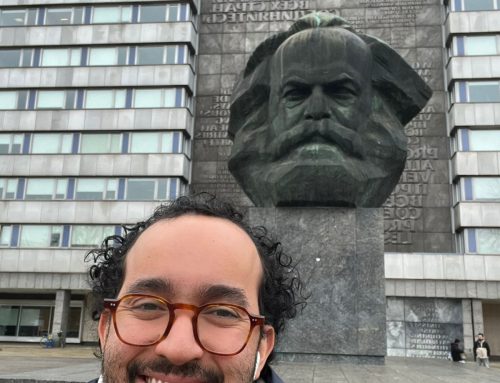“The talk takes a hands on practical approach to show how a little bit of familiarity with programming may benefit a researcher in the humanities. We are the machines, pcs are our tool. It is our duty to set them properly and use them to do less boring work (e.g.: typesetting bibs) and have more time to actually think and do our research. After a brief presentation of the benefits of this “Coding for Humanities approach”, I showed how Python programming language doesn’t bite and that Markdown speeds up the production of research outputs.
I briefly introduced GitHub as a way to store and track your progress, while collaborating with the world.
I then presented some real-world tools to automate boring academic task like merging and cutting PDFs, renaming files, organizing bibliographies, building a template to write grant proposals, etc.
To show something useful as well as interesting, I briefly touched Montecarlo simulations and agent-based modelling as well as parsing papers to perform some natural language processing (NLP).”
 Guglielmo Feis is a philosopher (BA, MA) with a Ph.D. in Philosophy of Law (i.e. Faculty of Law) “experiencing first hand how to conduct interdisciplinary research and getting bashed from both sides. At least it is harder to get bored, working this way.”.
Guglielmo Feis is a philosopher (BA, MA) with a Ph.D. in Philosophy of Law (i.e. Faculty of Law) “experiencing first hand how to conduct interdisciplinary research and getting bashed from both sides. At least it is harder to get bored, working this way.”.
He has worked on impossibility in the legal domain, Ought implies Can, Social Ontology, normativity conflicts and a bunch of other topics (see on Academia or Research Gate for more). “I’ve been lucky to have wonderful co-authors. Now I am actively engaging working on blockchain and the law (and their philosophical relevance) plus the artifactual thesis of law.”
Seminar with Guglielmo Feis in dialogue with UNIRI CAS SEE fellows was held at the University campus on December 5, 2019.




